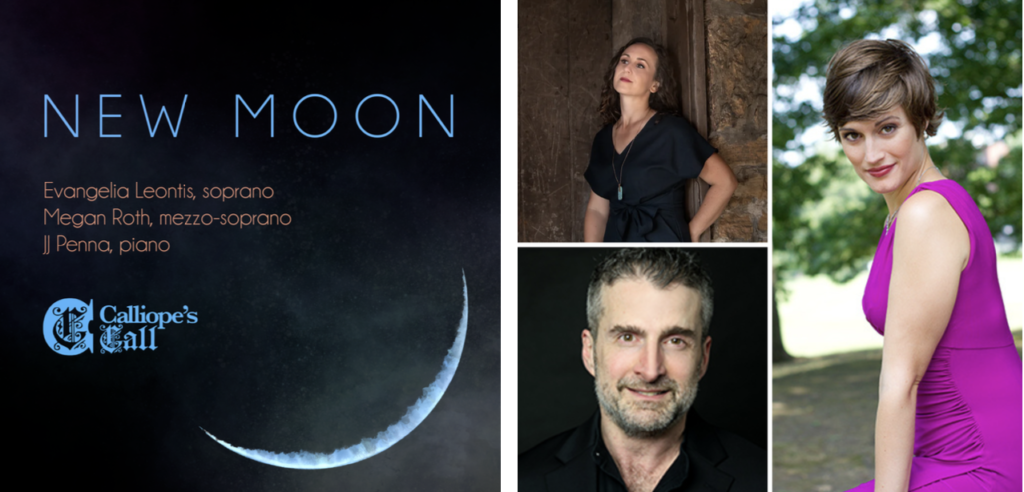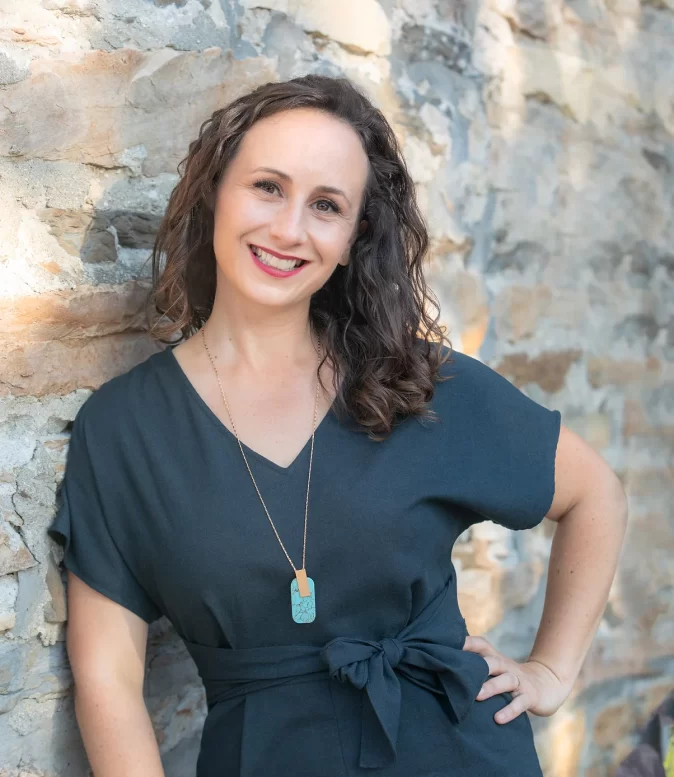By DAVID DUPONT
BG Independent News
A singer with roots in Bowling Green is featured on the debut recording of Calliope’s Call, a Boston-based ensemble.
Evangelia Leontis performs on “New Moon,” which will be available on all streaming platforms as of Thursday.
Leontis, 38, is a graduate of BGHS. She started studying music at 6 taking piano lessons with Kathy Rupp. “She was a wonderful beginning piano teacher. She instilled in me good musical habits.” She went on to study piano with Karen Beres, then a graduate student at BGSU. She studied violin with Penny Kruse, professor at BGSU, and got involved in choir in high school. She studied voice with Lance Ashmore, of the BGSU faculty.
When it came to time to attend college, she opted to major in music, focusing on voice, at Eastman after toying with the idea of a double major.
“I just couldn’t imagine doing anything else,” Leontis said.”I didn’t feel I had a choice.”
In her senior year at Eastman she took a course in pedagogy. “I really fell in love in teaching and still be able to perform.”
She performs as a soloist with regional orchestras and choruses as well as with Calliope’s Call in Boston.

Leontis met Megan Roth, the founder of Calliope’s Call, while she was studying at Boston University. They both were members of the Opera Boston chorus.
Roth founded the ensemble 10 years ago to promote the performance of art song.
The ensemble not only stages two annual performances of art songs, but also has competitions for young singers and for composers. “We do a lot of new music,” Leontis said.
Leontis was pursuing her doctorate at the University of North Carolina Greensboro at the time Roth was starting Calliope’s Call. When Leontis moved back to Boston after earning her doctorate, she took an active rol3 in the ensemble.
Her friendship with Roth developed into a partnership.
“I respected what she was doing with Calliope’s Call,” Leontis said. “The art song repertoire has always been important to me.”
She became administrative director of the ensemble, with Roth as founder and artistic director.
“As we approached our 10th anniversary we wanted to make a recording,” Leontis said.
“New Moon” celebrates art songs composed by women.
The album includes two sets of songs each by Roth and Leontis. Roth, a mezzo-soprano, performs “Valentines from Amherst” settings of the poetry of Emily Dickinson by composer Jodi Goble and “Love after 1950” by Libby Larsen, which sets the work of several notable contemporary female composers.
Leontis, a soprano, performs “The Dream of the Moon,” composer Sarah Hutchings’ settings of poems by the 14th century Persian poet Hafez.
Leontis and Hutchings met in North Carolina. Leontis performed a set of the composer’s songs on her doctoral recital. The singer posited the idea of a new set of songs with the Persian verse as a text.
The song cycle covers the arc of a love affair from the early flirtatious stages aptly captured in “The Giggle Fit,” a brief bon-bon that ends with the singer exclaiming “kiss me!”
“The emotional range is really quite vast,” Leontis said. “I found that appealing.”
One speaks of the wonderful feeling of being in love and of passion while others speak of bitterness and resentment. Each song is “a little world of its own,” Leontis said.
Hutchings has synesthesia: she sees colors when she hears particular musical notes and harmonies. That comes through in the music, Leontis said. The composer has an extensive palette. “She really captures the mood of the text.”
Marion Bauer’s “Four Poems” came immediately to mind for Leontis when the recording project was proposed. She had performed the piece as part of her doctoral work.
She had been looking for new unknown work to perform and discovered Bauer’s work. “I was shocked I had never heard of her,” Leontis said.
Bauer was an influential musical figure in the early 20th century, but now is less known.
Leontis was determined to record her work when she had the opportunity. A decade later that time has come.
“Four Poems” sets poetry by John Gould Fletcher, who was also an innovator in the early 20th century but now little known.
Bauer studied with Nadia Boulanger. That French influence is evident in her rich harmonies. The piano part is virtuosic. The melodies soar over that complexity. “The melodies are beautiful and gorgeous and really satisfying to sing.”
That difficult piano score is performed by J.J. Penna, a faculty member at the New England Conservatory and Yale.
He is one of the top pianists in Boston, Leontis said. Roth “was really intent on getting him to play on this recording.”
Roth and Leontis round out the recording with the Irish ballad “The Parting Glass,” arranged by Gilda Lyons for two voices without accompaniment.
Leontis lives in Winhall, Vermont. She moved to the state after marrying her husband Travis Dobson.
They met while working at Tanglewood, the summer music festival in the Berkshires of western Massachusetts.
Dobson was living in Vermont, and Leontis was happy to move away from traffic and high cost of living in Boston. They now have twins who are toddlers.
The state offers her opportunities both to perform and teach. She maintains her own studio including offering early childhood music lessons and teaches at Keene State College in New Hampshire and Vermont State University in Castleton.
“I love sharing my passion for singing with other people,” she said.

